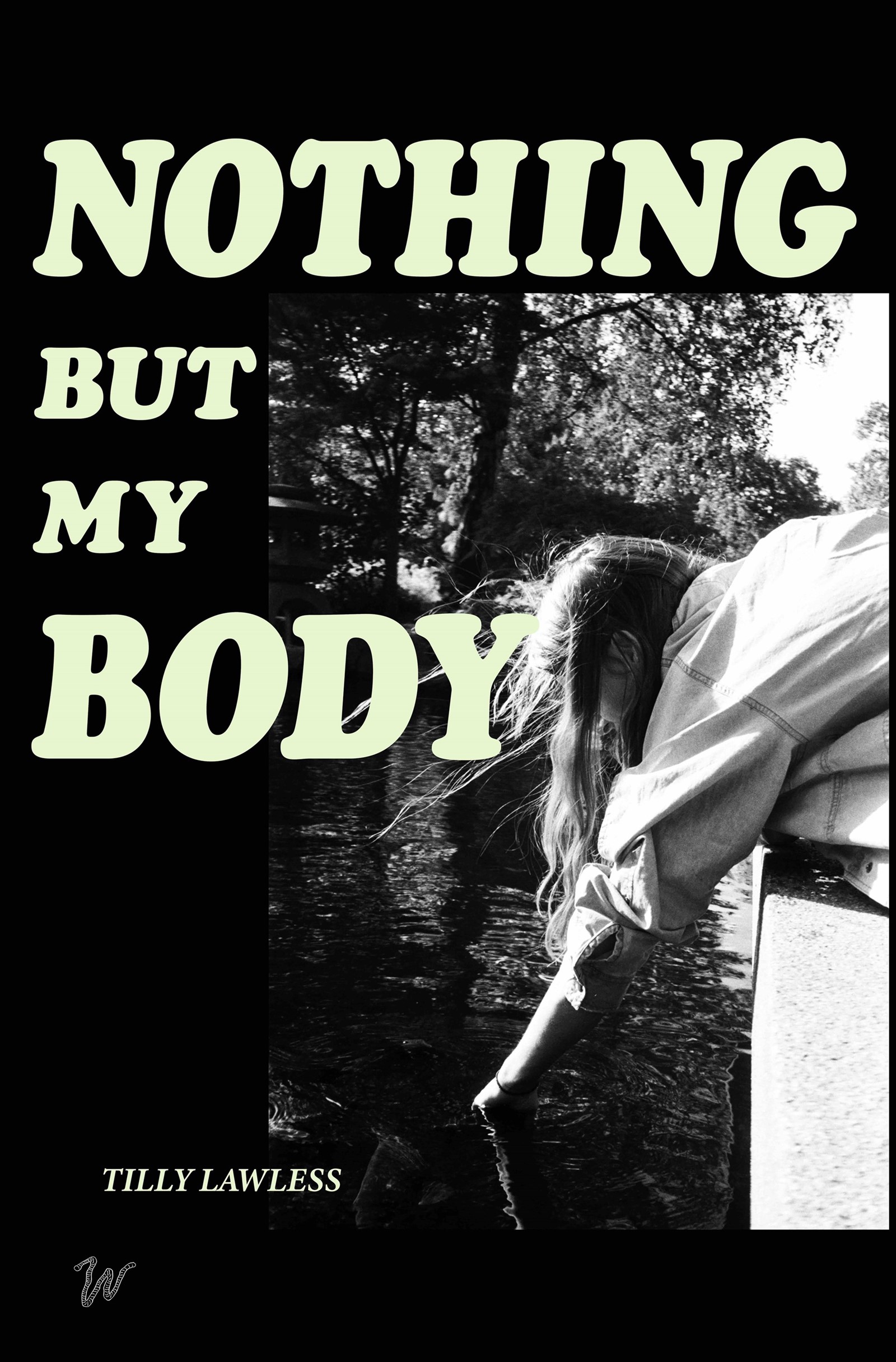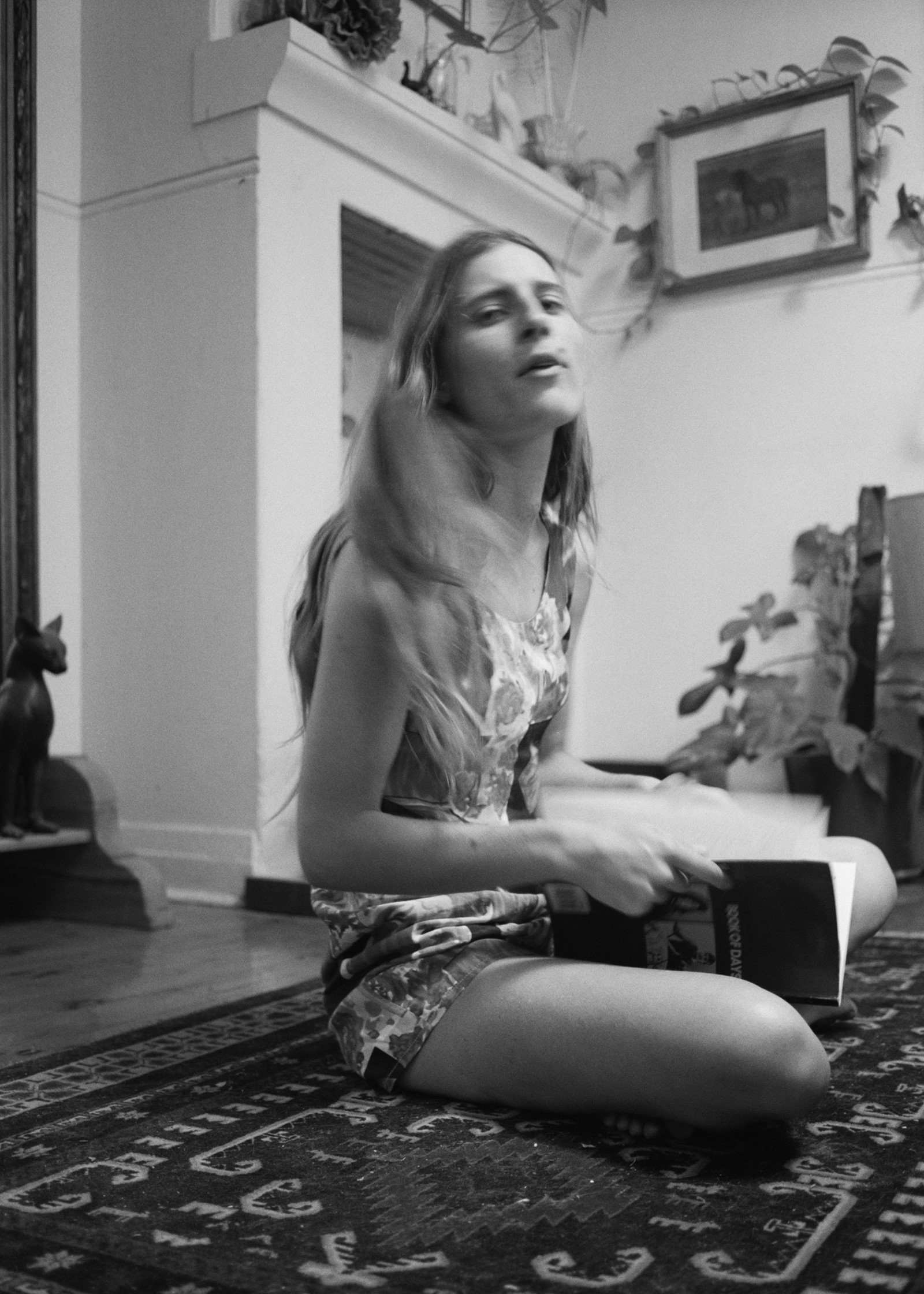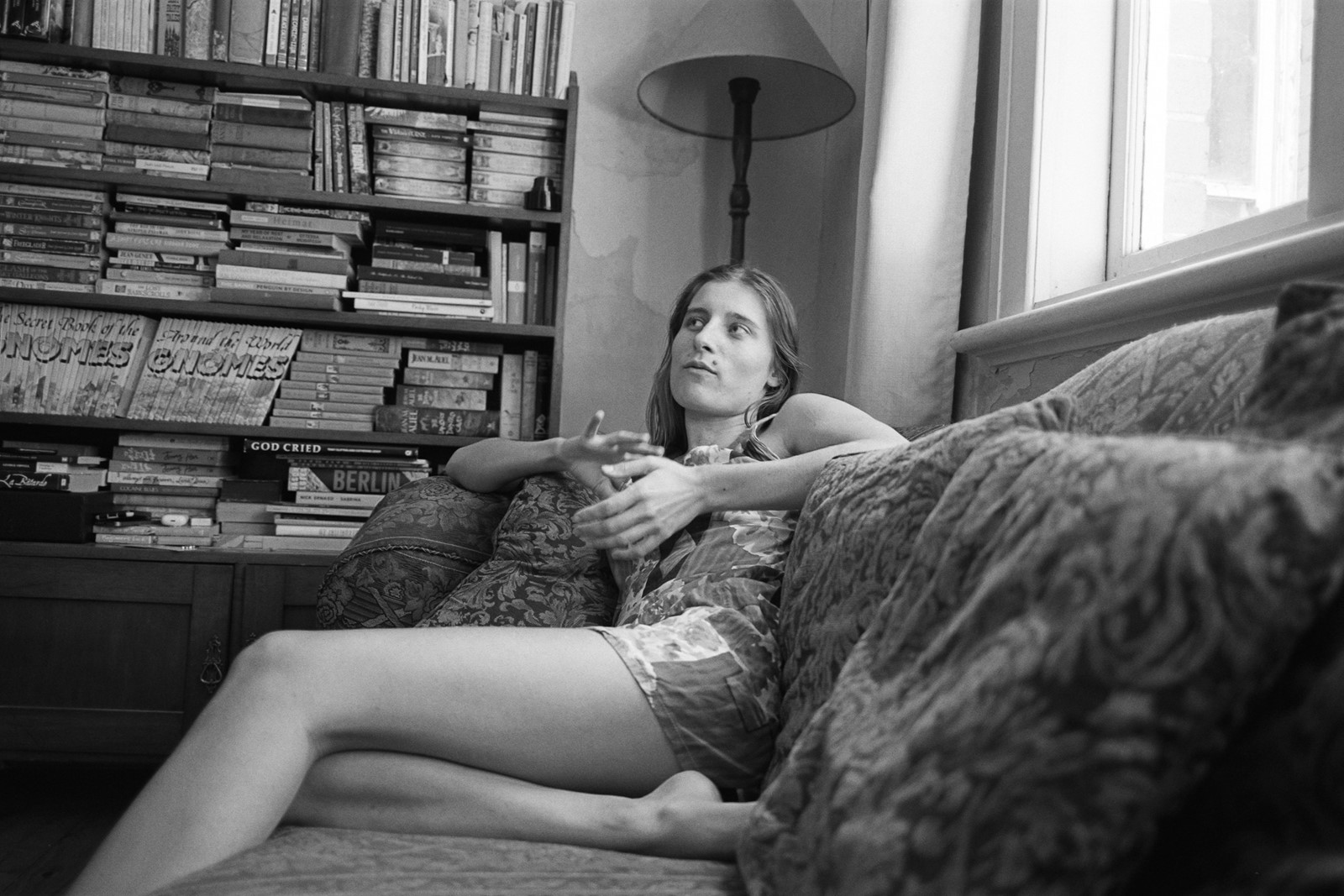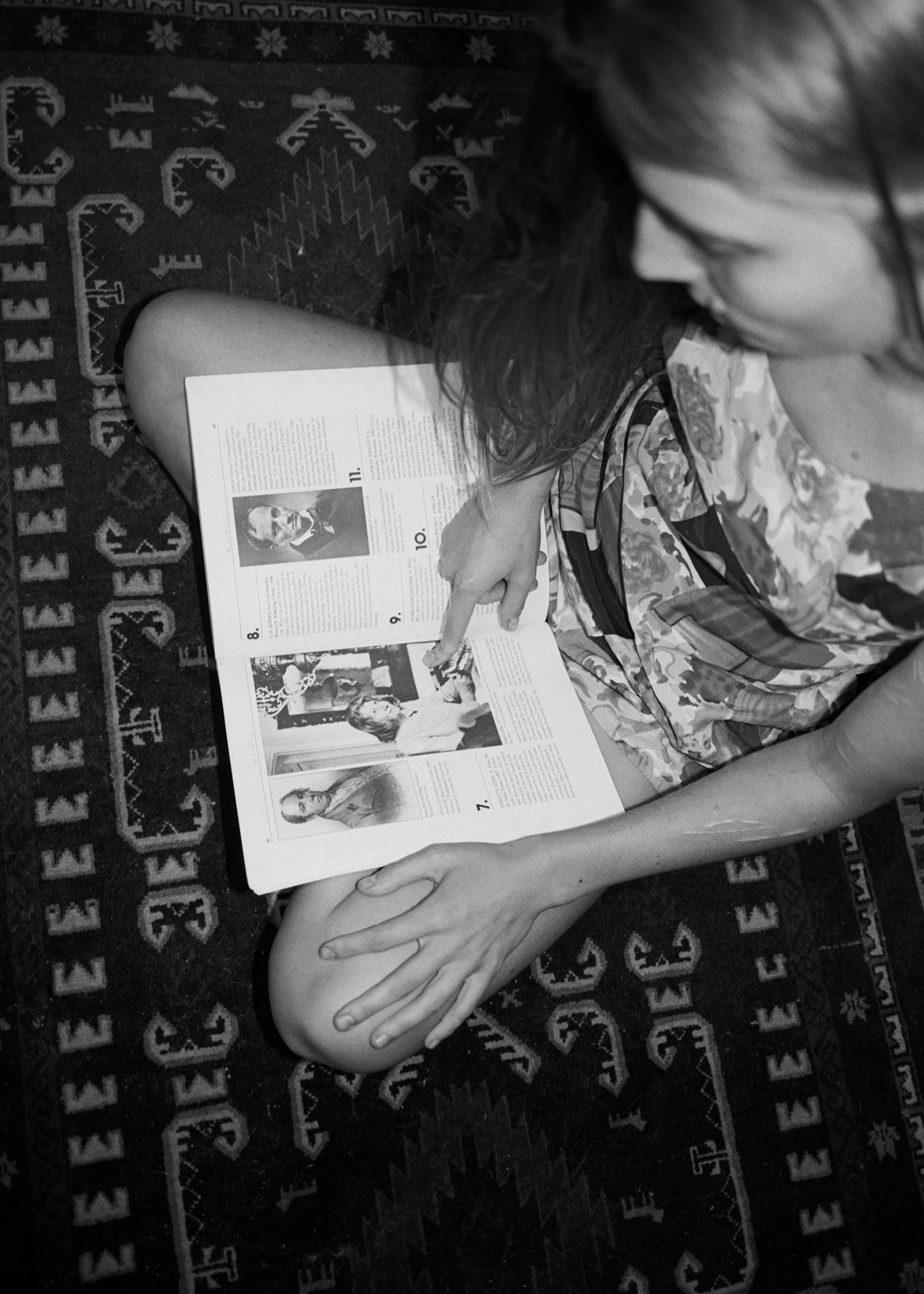Tilly Lawless’ acclaimed debut book sits somewhere on the axis of memoir and fiction, but she doesn’t believe in genre anyway. “In weaving fiction and the truth together, it’s become something else,” she explains. “I mean, why do we even have genres? I find it very archaic that we’re still trying to categorise books in that way.”
Taking place on eight significant days over the period of an exceptionally dramatic year, Nothing But My Body invites us to enter the richly complex interior world of a young, queer sex worker from Australia. Among much else, the unnamed narrator navigates heartbreak and the rejection of romantic love, the highs and lows of her job, the isolation and financial insecurity of lockdown, the euphoria of clubbing with friends, and the grief of the devastating 2019 Australian bushfires.
One of the striking aspects of the book is its stream-of-consciousness immediacy, as if it’s transcribed directly from a livestream in Lawless’ mind (Lawless says that her biggest inspirations were Leslie Feinberg’s Stone Butch Blues and Virginia Woolf’s Mrs Dalloway). In a sense, it was. She began writing it during the first lockdown and then responded in real-time as the pandemic unfolded, although she’d already been honing this style over years of confessional social media dispatches. “Since 2013, I’ve often used my Instagram as catharsis and written these long captions. It really taught me to hone my writing down and think about every individual word I chose, because of the caption limit,” she explains. “I noticed that the pieces of online writing people liked most were those immediate, emotive pieces and so I kept writing to my strengths.”

While Nothing But My Body’s visceral prose allows us to follow the looping thread of its narrator’s thoughts, Lawless – as the title suggests – also respects the primacy of the body. The narrator’s physical realm is as important as her cerebral life. We’re in her head but we’re also in her body, experiencing the physicality of her days – getting fucked, swimming naked in the ocean with the waves lapping between her legs, or dog-tired after a long shift at work.
Below, AnOther spoke with Lawless about the act of caring, choosing platonic love over romantic encounters, and the hazy, often-irrelevant distinction between authenticity and performance.
Emily Dinsdale: For the uninitiated reader, could you begin by introducing the protagonist and the world in which the book takes place?
Tilly Lawless: She is a mid-20s, white, queer sex worker in Sydney. That’s the part that comes from my life, I guess. Nothing But My Body follows this girl across eight days of her life over a year period. Each day is significant and shows the way that our external environment impacts our internal thoughts, as well as the way that the pace of our thoughts will change according to our mental health and emotions.
“My body is very real to me, and a lot of my emotions start in my body” – Tilly Lawless
ED: It’s an incredibly significant year ….
TL: I started writing it when we went into lockdown in March 2020. Originally, it was going to take place over seven days and I had plotted them out and decided what the themes were and what was going to happen. I knew the bushfires would feature on one of the days. Then, as I was writing, other things were happening … Coronavirus was happening, Black Lives Matter was happening, so I was adding on days. It was very much reflective of the time in which it was written and my initial reaction to the pandemic.
ED: So, in a sense, it was written as an immediate response to these events unfolding?
TL: Yeah, and a lot of the writing in the earlier parts of the book were based on diary entries or writing of mine from that time as well. I would take writings of mine from the bushfires which were really immediate and visceral with how I felt at the time, and then use that as a jumping-off point to continue that mood through the chapter. So I guess they were the bits of reality for me.

ED: When you began writing the book did you have a manifesto for what you wanted it to be?
TL: I knew that, overall, I wanted it to be about being disillusioned with romance and the rejection of romantic love. I also knew that I wanted it to deal with sex work, but that I didn’t want sex work to be the problem topic. I wanted sex work to be the backdrop in the same way that all the locations are the backdrop. And then other things just became clear to me as I was writing them.
ED: One of the words I kept encountering in the book was ‘care’ in all the many ways we use that word … the care that’s involved in the sexual and emotional labour of sex work; also care in relation to romantic relationships – caring too much, not being cared for enough; and caring about the welfare of the natural world.
TL: That doesn’t surprise me at all because, as you say, sex work is a form of care work. I write about friendship a lot as well and, at the end of the day, what is friendship if not just caring deeply for another person? ‘Care’ is one of those really interesting words. It seems like such a simple word, but I was speaking to a German friend the other day and I used the word ‘care’. I said, ‘How would you say that in German?’ He was like, ‘Oh, I can’t translate that easily in German.’ When you think about it, it’s actually quite a complicated word.
ED: You write very evocatively about physical sensations – it’s a very visceral read.
TL: I’m glad you noticed that because sometimes people think of things that are cerebral as more valuable than things that are in the body. Even the way that labour with the body is seen as less skilled than labour of the mind. So often where we're taught to try and restrain or control our bodies. For me, I think my body is just as important as my mind is. I don't believe there’s a spirit or there’s life after death. I think that once your body ceases to exist, that is a ceasing of you because your body is you. Your body is not a servant of your mind, or lesser than your mind. My body is very real to me, and a lot of my emotions start in my body.

ED: The book feels so fully on the side of nature; not just in terms of how you write about the natural world, but also in the sense of people giving full expression to their own natures.
TL: It’s not something that I deliberately put in there, but I think that’s a really defining aspect of my personality. Integrity really matters to me and I think part of integrity is being true to your natural self. Ultimately, that’s what I value more than anything. I don’t care about dignity or respect for other people, but I need to have integrity. It’s interesting to me how much of myself that I don’t even realise I put into the writing.
“Once you realise it’s friendships that matter and that romance doesn’t matter in comparison, it is truly the most freeing thing” – Tilly Lawless
ED: That really comes across in your writing, and it’s really refreshing because in the wider cultural imagination there’s this abiding association between prostitution and insincerity. The prostitute archetype in literature and films is often a character who’s forfeited their integrity.
TL: Sex workers being perceived as insincere or fake, I mean, I find it so silly because, firstly, people perform in all sorts of jobs. Also, people perform in their sex lives and in their romantic and private lives. It’s so ridiculous to think that only prostitutes are performing. I’ve definitely performed at times with a partner – we all have. And sometimes performance is done for good reasons, sometimes we perform empathy we’re not feeling. Maybe we’re irritated with a friend, they’re talking about their boyfriend they’ve talked about a zillion times before, but you pretend to feel sympathetic. So this idea is ridiculous of performance being a terrible thing that we don’t all move in and out of.
Sometimes it’s even hard to tell. With clients, I’ll be performing a fake orgasm and sometimes I’ll end up really orgasming. I’m like, ‘Oh, wow, I can’t even tell at what point that was faking.’ I think that’s not necessarily a bad thing. People will often ask me if I feel shame about my job and I’m like, ‘I don’t even think about shame.’ I think that’s partly because I have my integrity. I feel comfortable with myself, therefore I’m not bothered by the opinions of people that I don’t know.

ED: At the end of the book, one of the narrator’s regular clients tells her that their conversations have made it possible for him to conceive of the idea of a partner working in the sex industry. I thought that might mirror the experience of some readers, in a way.
TL: That part – of a client having ended seeing me after a very long time because he was dating another sex worker – was true. And it was so special to me, because I was like, ‘Wow, I have changed the course of two people’s lives in a nice way here.’ She’s ended up with a boyfriend who supports her work, and he’s ended up with a girlfriend that he loves. I feel like there are so few honest representations of sex work. I feel like any honest representation of sex work is probably good for someone who doesn’t know anything about it.
ED: You describe the book as being a love letter to friendship. Could you tell us a little about that aspect of the story?
TL: That was definitely heightened by the fact that I was writing it in lockdown and I missed so many of my friends so much. I think my desire for these friends really permeated the whole writing of the book for me. At the end of it, I was like, ‘What do I even exist for in life other than for my friendships?’ That’s what sustains me, that’s what brings me joy. Once you realise it’s friendships that matter and that romance doesn’t matter in comparison, it is truly the most freeing thing because it stops you from dating out of a weird desire to get a partner, it stops you fucking people for validation, it stops you doing all these things that we’re socialised to do. That’s the running theme of the book. Once I finished writing, I realised this is a love letter to my friends, this is what we live for – to have connections with people.
Nothing But My Body by Tilly Lawless is published in the UK by Worms, and is out now.
